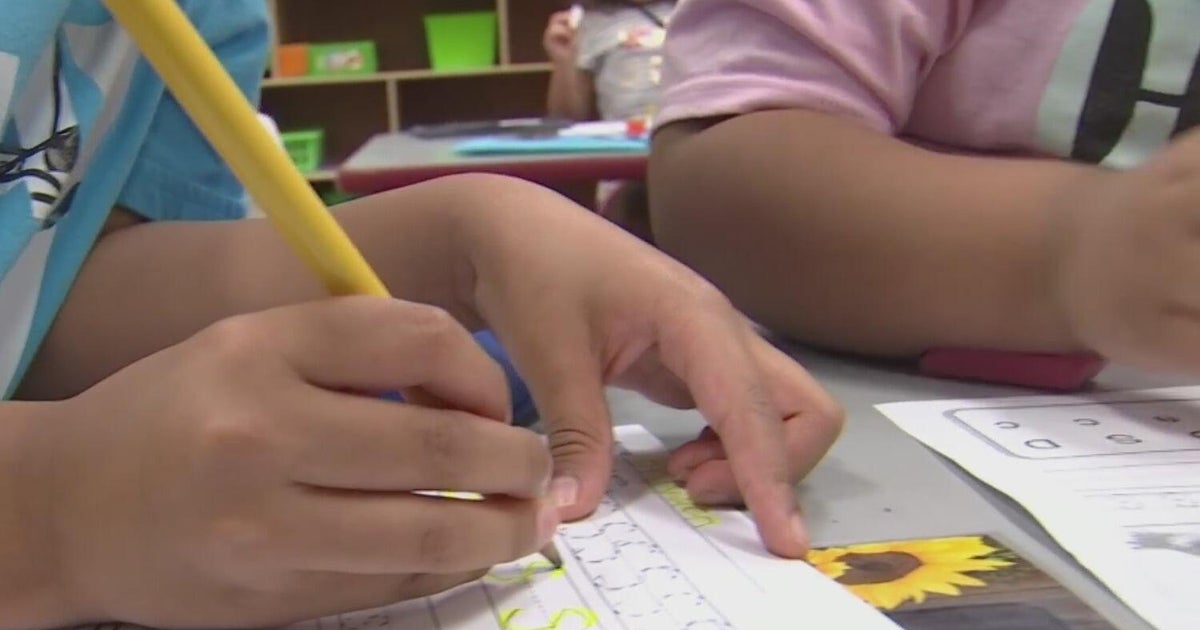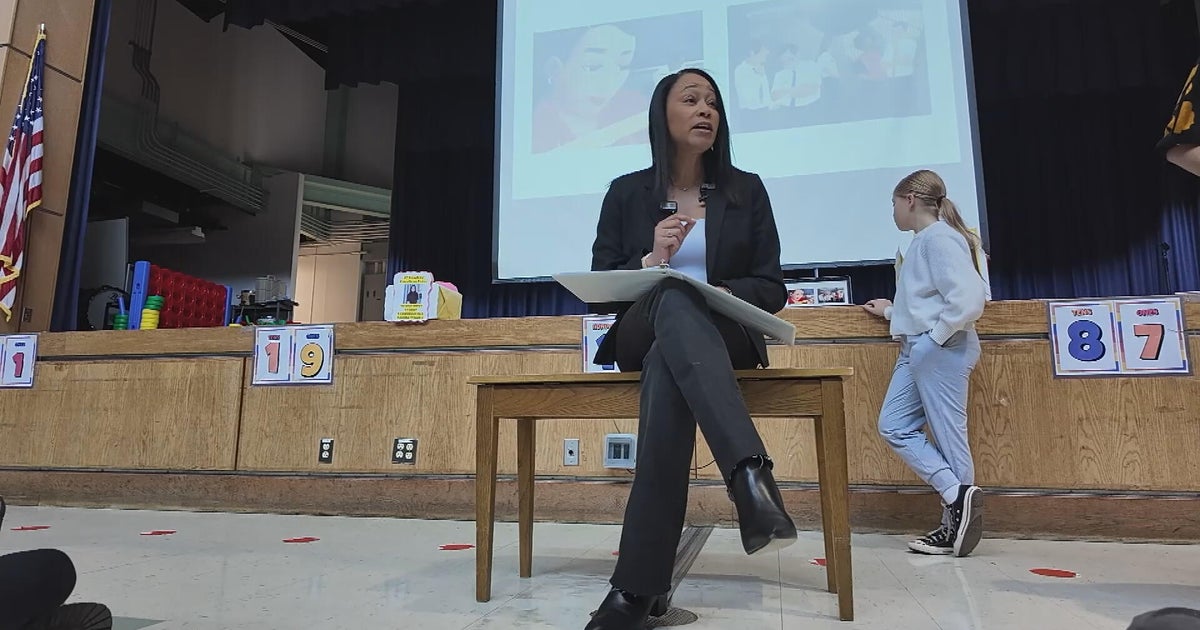Baltimore City students made little progress in math, reading, according to 2024 national test
BALTIMORE -- Baltimore City students are performing below average in math and reading compared to other students in large cities, according to the latest national test results.
The 2024 Nation's Report Card shows city students made little progress in mathematics and even less in reading proficiency between 2022 and 2024.
Congress requires that the test be given to a sample of students across the nation every two years. This year's test comes four years after the COVID-19 pandemic shut down schools across the U.S., causing continued impacts on education.
Baltimore City math scores
In 2024, the average math score of 209 for fourth graders in Baltimore City schools was higher than the average of 201 in 2022. The group had the third largest growth in math among other districts in large cities, the report showed. The 2024 average was lower than the average score of 222 in 2009.
"Our fourth-grade math performance is encouraging. We know our approaches are working, our families are supporting the work, and our staff continue to push boundaries for our young people to reach their potential," said Dr. Sonja Brookins Santelises, chief executive officer of City Schools. Our focus is to continue the momentum of our acceleration efforts to reach more students."
For eighth graders, the average math score of 245 was the same as in 2022 and lower than the average of 257 in 2009.
The national test also revealed score gaps between student groups in 2024. For example, Black students in eighth grade had an average math score that was 39 points lower than the score for White students.
Among fourth graders, students who were identified as being economically disadvantaged had an average score that was 15 points lower than those who were not economically disadvantaged, the test results showed. The performance gap was similar in 2009.
Dr. Santelises said City Schools have been focused on improving math skills. She said they even launched new curriculum for some students.
"We will go fully across the district this coming school year," she said. "But I think, most importantly, what the families and public can take to heart some real key pieces. One, the teachers and principals say overwhelmingly it was the professional development."
She added that coaching and refreshing math content for students, helped build up math scores.
Baltimore City reading scores
Fourth and eighth-grade Baltimore City students scored below average in reading. Only 13% of fourth-grade students performed at or above the National Assessment of Educational Progress's (NAEP) proficient level in 2024, while 16% of eighth-graders performed at or above the level, according to the test results.
Again, there were some score gaps among student groups in reading proficiency. Among fourth graders, students who were identified as economically disadvantaged had an average score that was 24 points lower than those who were not disadvantaged.
Among eighth graders, male students in the city scored 11 points lower than their female peers. Economically disadvantaged students also scored 11 points lower than their counterparts.
According to district officials, schools experienced strong gains in middle school literacy since 2016 as scores increased by 13 to 16 percentage points in sixth through eighth grades.
Despite the scores being below average, Dr. Santelises said reading levels have been steady in Baltimore. She said City Schools have already started the work to increase reading skills.
"A full literacy diet, for lack of a better term, has to include heavy portions of writing," Dr. Santelises said. "So, we've been really expanding our work with Writing Revolution and at Wexler's work and getting really great feedback."
Maryland reading and math scores
Nationally, the test results show that children are continuing to fall back on reading skills and made little improvement in math, according to CBS News.
Fourth and eighth graders across the state scored lower in mathematics than the national average, though fourth graders saw improvement over the past two years, scoring 234 in 2024, up from 229 in 2022, the report showed.
However, gaps between student groups remained as Black students in both fourth and eighth grades scored 32 points lower in math than White students. Fourth-grade Hispanic students scored 29 points lower than White students, and eighth-grade Hispanic students scored 31 points lower.
Maryland READS released a statement in response to the state's report card. They said Marylanders should be "cautiously optimistic about the progress we are making as we work together to tackle our state's reading crisis.'
"From a foundational standpoint, we are moving in the right direction," the statement reads. "State leaders have taken major steps to provide a system of support for our schools. They have implemented evidence-based policies that promote systemic change. State leaders have embraced the Science of Reading to improve instruction, developed a comprehensive statewide literacy policy, and are providing educator training and assessment and investing in coaching. At Maryland READS we are committed to advancing thriving reading ecosystems that provide opportunities for children and families to build skills, gain access to resources, and engage in reading activities outside of the classroom. As a state, we are well on our way."
-Maryland Reads








